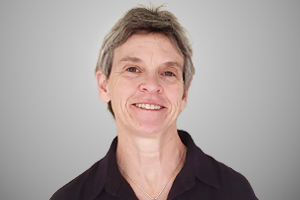This website uses cookies so that we can provide you with the best user experience possible. Cookie information is stored in your browser and performs functions such as recognizing you when you return to our website and helping our team to understand which sections of the website you find most interesting and useful.
A guy lounging without a shirt. A 5-year-old demanding attention. A dog barking at the UPS driver. Someone has been drinking. A woman is speaking but no one can hear her. Pre-COVID-19, the chance of encountering any—let alone all!—of these scenarios during focus group sessions was pretty slim. Focus groups were carried out in an in-person facility, with prescreened respondents and a gatekeeper to send anyone home who was behaving inappropriately. Accommodations required by the pandemic have changed all that. Kerry Levin, Ph.D., and Cynthia Robins, Ph.D., Westat qualitative research experts, recently shared lessons learned over the past few months. “We didn’t know what we didn’t know,” admits Dr. Levin, a Westat Vice President, “but we do now. And we’re developing solutions and stronger partnerships with our clients as we move through this challenging time together.”

Recruitment & Attendance
Pre-COVID-19, Westat worked with brick-and-mortar facilities whose staff have extensive experience recruiting participants for in-person focus groups. To adapt to the new environment, we tried to pivot to online vendors, some of whom cater more to market research efforts. “We have criteria for recruitment and found these new vendors reached out via social media for participants. Many participants didn’t understand what a focus group was, requirements for participating, or at times, even appropriate behavior,” comments Dr. Robins, a Westat Senior Study Director. “Vendors weren’t aware that we didn’t want just any warm body. We’re looking for participants with accountability who meet very specific recruitment criteria.”
Technology
Tech support is key in the virtual environment, as we’ve all learned in 2020. “This is a huge issue,” notes Dr. Robins. “We work now with a company to help people sign in and maintain connectivity throughout.” The communication with the session moderator and tech support is critical in maximizing the group’s engagement and minimizing session distractions, particularly if it is obvious that a participant is struggling or exhibiting poor behavior. “Then, it is critical that we can rely on tech support to quickly step in and help those struggling with technology or disengage with those who are disruptive to the session,” she explains.

Moderation
The role of the focus group moderator is in many ways more challenging than before. She has to concentrate on the screen to maintain direct eye contact and engagement with all participants, scan to see if anyone wants to add something to the discussion, and ensure the research protocol is being followed as written. “Simply looking away from the camera to check your notes could potentially cut off rapport,” explains Dr. Robins. In an in-person environment, the group develops its own vibe and interacts, and the moderator helps bring the energy. “Unfortunately, no amount of technology can replicate that experience in a virtual environment,” she concedes.
Solutions
Westat has developed a number of mitigation strategies to improve the process. We are canvassing, interviewing, and meeting with multiple vendors and requiring that they have expertise in recruitment and technical assistance. Our team is building more robust screening processes for vendors to follow, with protocols for acceptable online participant behavior and adding a recruitment stage to verify a person’s “ability to connect and use the technology. A hybrid approach is also being considered in which we use in-house support to manage the technology. The goal is to have a smooth, fluid experience,” notes Dr. Robins.
While these past few months have been challenging, they have also provided unique learning experiences for all, including our clients. “It is critical for us to maintain close communication with our team and our clients throughout,” says Dr. Robins, “and we have course-corrected along the way.” Dr. Levin adds that the experience has been beneficial in a number of ways: “We’ve found ways to move in positive, creative directions. Clients, having experienced firsthand along with us how difficult this is, acknowledge and appreciate our transparency, flexibility, and willingness to adapt through this entire process.”
-
Issue Brief
Doula Support in Black Maternal HealthApril 2024
The U.S. currently faces a crisis in Black maternal health. Black women die from pregnancy complications at a rate 2 to 4 times higher than…
-
Expert Interview
Leading with Diverse Ideas: Edwards Shares Vision for JSSAMApril 2024
With 4 decades of designing and managing large, complex surveys, Westat’s Brad Edwards has decided to add another leadership position to his resume by becoming one…
-
Expert Interview
Leveraging WIC EBT Data for In-Depth Program AnalysisApril 2024
Since its founding 50 years ago, the Special Supplemental Nutrition Program for Women, Infants, and Children (WIC) has been a critically needed source of food…

